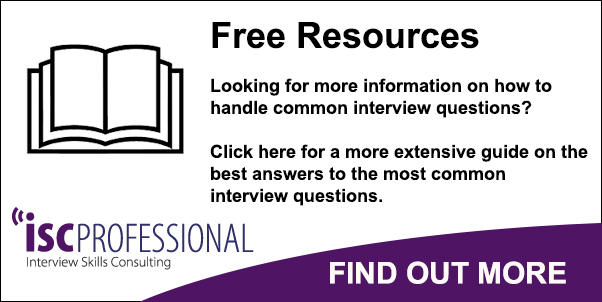Smart Ways to Answer Tough Interview Questions
A key part of pre-interview preparation is anticipating what questions are likely to be asked. Although the specifics will often depend on the nature of the position being interviewed for, there are also general questions which frequently come up.
While many of these are straightforward, what happens when the interview strays into less comfortable territory? Here we look at how to handle common tough interview questions.

Characterising your character
One of the most common interview openers is –tell me about yourself. This may sound innocuous enough but think carefully in advance about what you want to say.
This can be a tough question because it often leads to the interviewee saying too much without saying what the panel actually wants to hear. Keep your answer short and if possible tie it into your professional attributes. If you need clarification on which aspects of your life that they want to hone in on, then ask for it. Being proactive saves their time and shows you are assertive.
Keep your answer short and if possible tie it into your professional attributes. If you need clarification on which aspects of your life that they want to hone in on, then ask for it. Being proactive saves their time and shows you are assertive.
Working with weakness
An interview is a great opportunity to talk about your achievements and accolades but what should you do when asked about weaknesses?
A common mistake is to dismiss the question and claim not to possess any imperfections, but there’s an obvious problem with this approach- we are all human so denying our flaws is pretty unrealistic. There are three elements to effectively handling this issue.
Firstly, pick a weakness which is not too substantial- this is not the time to admit to serious shortcomings.
Secondly, describe the weakness in an honest way- this demonstrates self-awareness and humility. Thirdly, show how you have addressed the weakness- thus turning it into a professional development issue which you have already dealt with.
Taking care of conflict
Another potentially contentious area for interviewees is conflict. Panels often ask about a time when you have had to deal with division or discord in a work context.
Acknowledging the existence of friction within your team may seem like a precarious path to pursue in an interview, but it is, in fact, an opportunity for you to show how well you can address what is a common problem.
Start off by highlighting the importance of appreciating and understanding the perspective of all parties to the dispute, showing you have taken the time to listen to everyone concerned.
Focus on the skills you used to encourage the team to work together and find a collaborative solution, rather than getting caught up in the story of the squabble itself.
Dealing with your departure
One of the biggest potential pitfalls at interview is to badmouth your current or previous employer. Yet when faced with the question – why do you want to leave your current job– that is exactly what all too many prospective employees do!
Even if your past employment experience was awful, you should never say this at interview- otherwise the panel may question your loyalty. It is essential to remain upbeat and positive about your reasons for leaving- wanting a new challenge, being keen to progress within your career or wanting to make use of your experience and skills in a different way are all positive angles to base your answer on.
Getting professional advice on this and all aspects of interview preparation is a worthwhile investment of your time and a great place to start is with the Interview Skills Consulting team. For more examples of interview questions come across, visit ISC Consulting.





